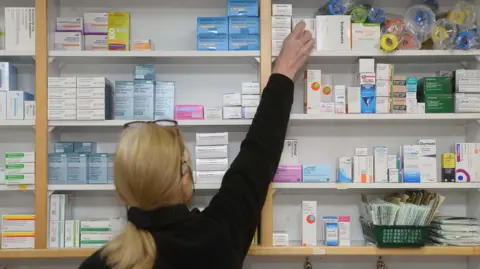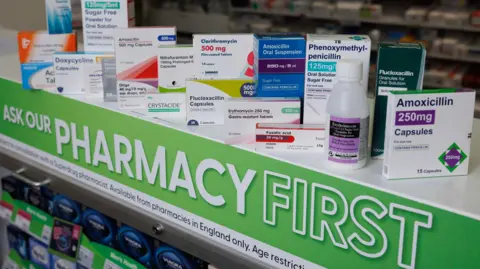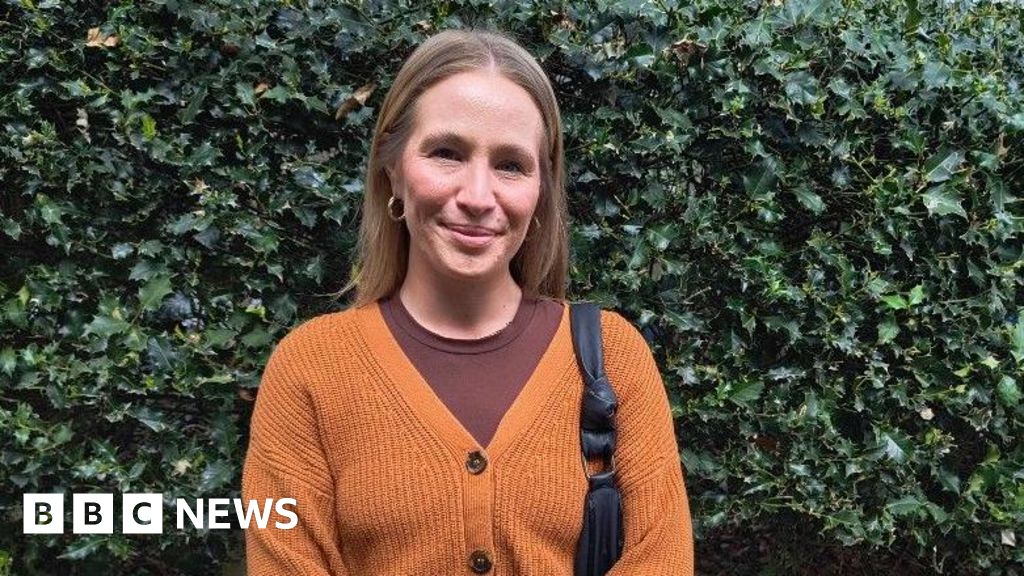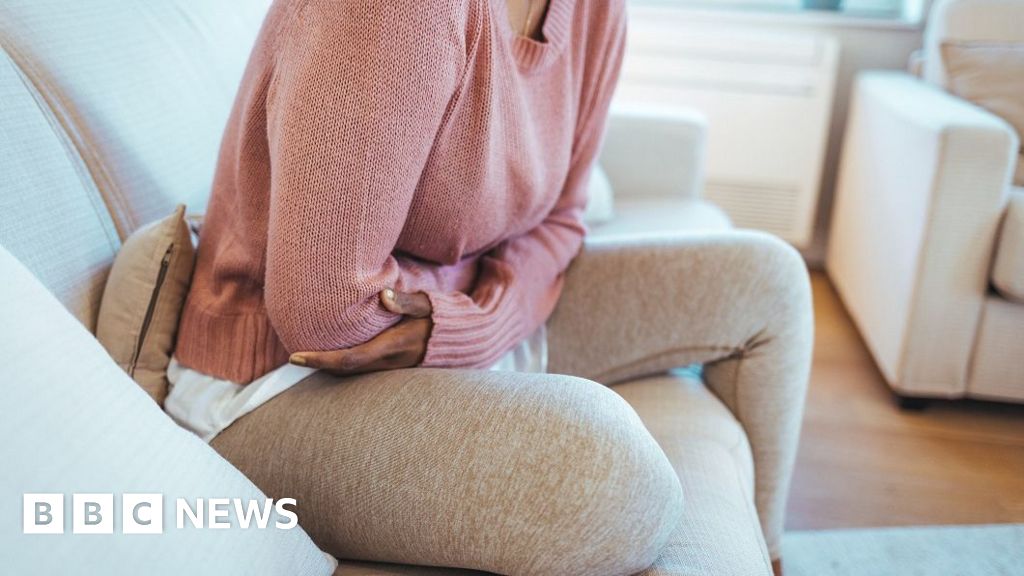ARTICLE AD BOX

 MARK MARLOW/EPA-EFE/REX/Shutterstock
MARK MARLOW/EPA-EFE/REX/Shutterstock
This is the first time pharmacists have voted to take action in their history
Pharmacy owners in England, Wales and Northern Ireland have voted in favour of cutting opening hours and stopping home deliveries for the first time, in a protest over government funding.
The National Pharmacy Association (NPA), which ran the ballot, is calling for an annual £1.7bn funding increase to plug the “financial hole”.
The NPA represents 6,500 of the UK's community pharmacies - that's around half of them. It says 99% of those that responded to the vote said they were willing to limit their services unless funding was improved.
The Department of Health in England says it wants all pharmacists to work with it to achieve a service fit for the future.
Some 3,339 independent community pharmacies in England, Wales and Northern Ireland took part in the unprecedented ballot, which is a turnout of 64%.
The vote comes after the Budget saw increases in National Insurance contributions and the National Living Wage.
The government has not committed to supporting pharmacies to cover these costs, the NPA says, unlike other parts of the NHS.
The pharmacies' body, which isn’t a trade union, says 700 pharmacies have shut in England in the last two years alone - the equivalent of seven a week - because of workloads and budget cuts.
It adds that core government pharmacy funding in England has fallen by 40% since 2015-16, after adjusting for inflation.
The NPA says it will be left with no choice but to recommend pharmacies withdraw services from as early as the new year, if funding isn't increased.
What could change?
Pharmacies could decide:
- not to open beyond 40 hours a week, into evenings and at weekends
- to stop providing free home deliveries of medicines which are not funded
- not to offer emergency contraception, substance misuse and smoking support services
- to refuse to co-operate with certain data requests
- to stop supplying free monitored dose systems (medicine packs), other than those covered by the Disability Discrimination Act
'Something has got to give'
NPA chairman Nick Kaye said the ballot result "overwhelmingly shows the sheer anger and frustration of pharmacy owners at a decade of cuts that is forcing dedicated health professionals to shut their doors for good".
He said he cared deeply about his patients - like other pharmacy teams - but he has never experienced a situation as desperate as this.
"Pharmacy owners are not a radical bunch. We have never proposed action like this before, but after a decade of underfunding and record closures, something simply has got to give,” Kaye said.
Ashely Cohen, who owns Pharmacist Healthcare Ltd in Leeds said: “I should be spending my time and energy to prevent illness, and do everything the government wants us to do to be agile and prevent illness, but my time is being spent on ‘do we have enough money to pay the bills in 30, 60, 90 days time'?”

 PA
PA
This action could affect services available under the Pharmacy First scheme.
The Pharmacy First service, launched in January in England, extended the range of services chemists can provide, including treatment of sinusitis, earache and shingles.
Members are not being asked to pull out of the scheme, the NPA said, but a reduction in opening hours and the stopping of locally commissioned services would affect it.
The NPA says urgent funding talks with the government are needed to guarantee patient safety and services for vulnerable people.
Pharmacy funding is set by devolved governments but the medicine funding arrangements - known as the drug tariff – are decided by Westminster for pharmacies in England, Wales and Northern Ireland.
Scottish pharmacies have a separate system, and are not involved in the current ballot.
Dr Leyla Hannbeck, chief executive of the Independent Pharmacies Association, said: "The community pharmacy sector is in an escalating crisis with a £1.7 billion shortfall in its funding. This has got worse by the hike in the employers' National Insurance, resulting in £12,000 extra costs annually for our members.
"As healthcare professionals, we believe that patients must not be caused suffering by any withdrawals of our members' valuable and vital professional services.
"The government must urgently raise pharmacy funding to prevent further closures of community pharmacies."
A Department of Health and Social Care spokesperson said: “Community pharmacy has a vital role to play as we move the focus of care from hospital to the community under the fundamental reforms in our 10 Year Health Plan.
"Unfortunately, we inherited a system that has been neglected for too long and is no longer supporting the pharmacists we need to deliver for patients at a local level."

 5 months ago
22
5 months ago
22








 English (US) ·
English (US) ·